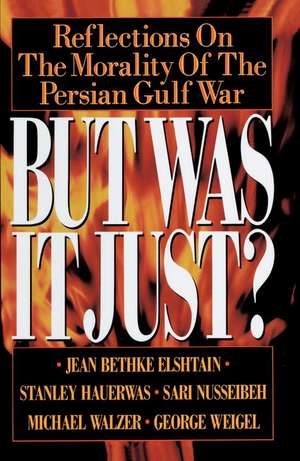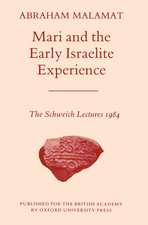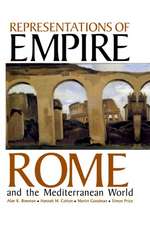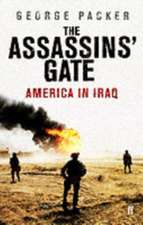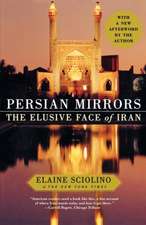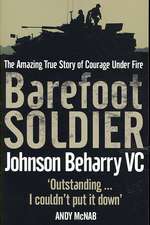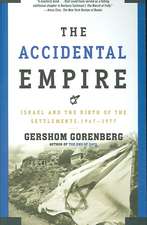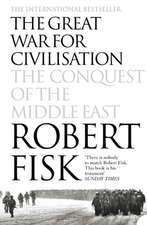But Was It Just?: Reflections on the Morality of the Persian Gulf War
Autor Jean Bethke Elshtain, Jean B. Bethke Michael Walzeren Limba Engleză Paperback – 31 ian 1992
"This is a remarkable contribution to contemporary debate on the issues of distinctively contemporary war. For those who want to know what the strongest arguments are on each side of the issues it is essential reading." - Alasdair MacIntyre, author, After Virtue
"A balanced and incisive debate on the morality of the Persian Gulf War." - Colonel Harry G. Summers, Jr., author, On Strategy II: A Critical Analysis of the Gulf War
"I think Desert Storm was just, but I admit it's arguable. And nowhere is the morality of the Gulf War--any war--argued with more energy, wit, and conviction than in But Was It Just? The war sparked a national debate, at once morally and politically important. But Was It Just? captures that debate in all its rich dimensions." - Fred Barnes, The New Republic
"A fine, always thought-provoking, and often moving collection of essays that shows not only the problems moralists encounter when they try to apply just war theory to a concrete case such as the Gulf War, but also the need to ask whether this theory ought to be applied at all in a world where it often serves as a cover for power politics and where war has become a gruesome evil. It is a first-rate collection!" - Stanley Hoffman, Center for European Studies, Harvard University.
Preț: 84.76 lei
Nou
Puncte Express: 127
Preț estimativ în valută:
16.22€ • 16.98$ • 13.42£
16.22€ • 16.98$ • 13.42£
Carte disponibilă
Livrare economică 15-29 martie
Preluare comenzi: 021 569.72.76
Specificații
ISBN-13: 9780385422819
ISBN-10: 0385422814
Pagini: 144
Dimensiuni: 139 x 215 x 11 mm
Greutate: 0.2 kg
Ediția:New.
Editura: Doubleday Books
ISBN-10: 0385422814
Pagini: 144
Dimensiuni: 139 x 215 x 11 mm
Greutate: 0.2 kg
Ediția:New.
Editura: Doubleday Books
Notă biografică
Jean Bethke Elshtain is Centennial Professor of Political Science and Professor of Philosophy at Vanderbilt University in Nashville, Tennessee. She is the author of Women and War and, coming out this year, Antigone's Daughters. She writes on the history of political thought, contemporary political and social theory, moral philosophy, and women's studies.
Stanley Hauerwas is Professor of Theological Ethics at Duke University in Durham, North Carolina. He is the author of A Community of Character: Toward a Constructive Christian Social Ethic and The Peaceable Kingdom. His writing focuses on an ethic of virtue or character.
Sari Nusseibeh is the director of the Jerusalem Center for Strategic Research and Professor of Philosophy at Bir Zeit University in the West Bank. He is author with Mark Heller of No Trumpets, No Drums: A Two-State Settlement of the Israeli-Palestinian Conflict.
Michael Walzer is the U.P.S. Foundation Professor of Social Science at the Institute for Advanced Study in Princeton, New Jersey. A writer on social ethics, he is the author of Just and Unjust Wars and, most recently, The Company of Critics.
George Weigel is president of the Ethics and Public Policy Center in Washington, D.C., and a Catholic theologian specializing in social ethics. He is author of Tranquillitas Ordinis: The Present Failure and Future Promise of American Catholic Thought on War and Peace.
La Civilta Cattolica is a Jesuit magazine published in Rome. Its editorials, which are written by an anonymous board of editors, are reviewed by the Vatican Secretariat of State, according to the Catholic News Service, the official press arm of the United States Catholic Conference. The director of La Civilta Cattolica, the Rev. GianPaolo Salvini, S.J., said, "We are neither an official nor a semiofficial voice of the Vatican. But according to...tradition, we are used to working in syntony with the Holy See, and we avoid publishing articles which are contrary to the mind of the Vatican. This was the case for this editorial too."
David DeCosse is an editor at Doubleday. He is a graduate of Harvard College and the Columbia University Graduate School of Journalism.
Stanley Hauerwas is Professor of Theological Ethics at Duke University in Durham, North Carolina. He is the author of A Community of Character: Toward a Constructive Christian Social Ethic and The Peaceable Kingdom. His writing focuses on an ethic of virtue or character.
Sari Nusseibeh is the director of the Jerusalem Center for Strategic Research and Professor of Philosophy at Bir Zeit University in the West Bank. He is author with Mark Heller of No Trumpets, No Drums: A Two-State Settlement of the Israeli-Palestinian Conflict.
Michael Walzer is the U.P.S. Foundation Professor of Social Science at the Institute for Advanced Study in Princeton, New Jersey. A writer on social ethics, he is the author of Just and Unjust Wars and, most recently, The Company of Critics.
George Weigel is president of the Ethics and Public Policy Center in Washington, D.C., and a Catholic theologian specializing in social ethics. He is author of Tranquillitas Ordinis: The Present Failure and Future Promise of American Catholic Thought on War and Peace.
La Civilta Cattolica is a Jesuit magazine published in Rome. Its editorials, which are written by an anonymous board of editors, are reviewed by the Vatican Secretariat of State, according to the Catholic News Service, the official press arm of the United States Catholic Conference. The director of La Civilta Cattolica, the Rev. GianPaolo Salvini, S.J., said, "We are neither an official nor a semiofficial voice of the Vatican. But according to...tradition, we are used to working in syntony with the Holy See, and we avoid publishing articles which are contrary to the mind of the Vatican. This was the case for this editorial too."
David DeCosse is an editor at Doubleday. He is a graduate of Harvard College and the Columbia University Graduate School of Journalism.
Textul de pe ultima copertă
President George Bush said yes; some bishops said no; even Doonesbury touched on the question. But what does it mean, in any case, to say that a war is just? What are the yardsticks of justice that support President Bush's claim that it was just to reverse Iraq's invasion of Kuwait? And how does one evaluate the justness of stopping the war when the allies did? And what of our fierce bombing of the fleeing Iraqi troops on the road from Kuwait? The threat to Israel? The value of oil in weighing whether to fight or not? But Was It Just? is an ethical primer in which the leading thinkers of our time on matters of war and peace take up these questions and more. In a style both popular and substantive, they explore the morality of the Gulf War in light of the centuries-old just war tradition; of political analysis; and of personal experience and conviction. Michael Walzer, author of Just and Unjust Wars, makes the case for the war's justness, as does George Weigel, president of the Ethics and Public Policy Center in Washington, D.C. Jean Bethke Elshtain, author of Women and War, explores the ambiguities of the war's morality and the role of women in it, while Sari Nusseibeh, a Palestinian philosopher, discusses the conflict from the vantage point of an Israeli jail. Stanley Hauerwas offers a Christian pacifist's response to the war. One appendix features a watershed editorial on the Gulf War and war in general by a Jesuit magazine that usually reflects the point of view of the pope. Another appendix features a chronology of the Gulf crisis, highlighting those events that have figured most in assessing the war's justness. This is a book for citizens and students about one of the mostsignificant episodes in recent American history. It is also a model of moral reasoning on questions sure to be with us again in the future.
Descriere
Was the Persian Gulf War just? Bishops said no; the president said yes; even Doonesbury considered the question. In this ethical primer, six leading writers on war and peace--Jean Bethke Elshtain, Stanley Hauerwas, J. Bryan Hehir, Sari Nusseibeh, Michael Walzer, and George Weigel--take up the issue that confronts us all.
